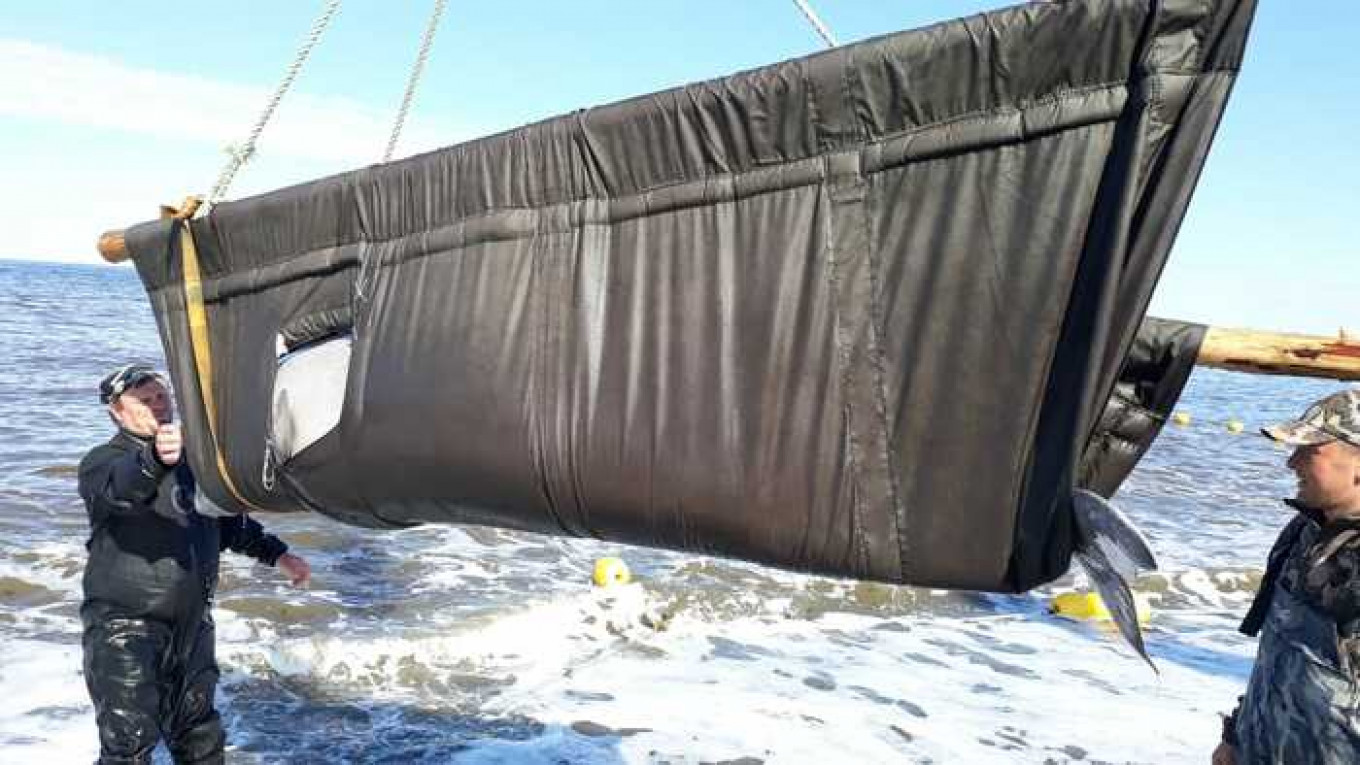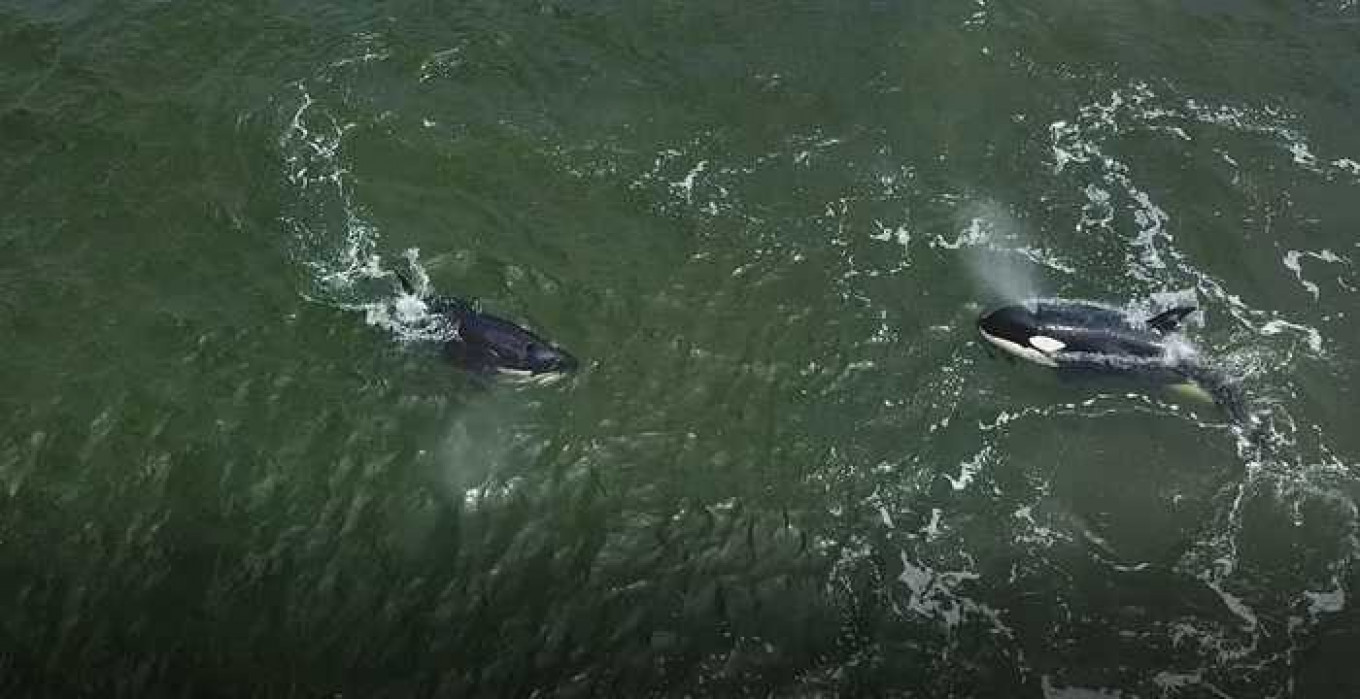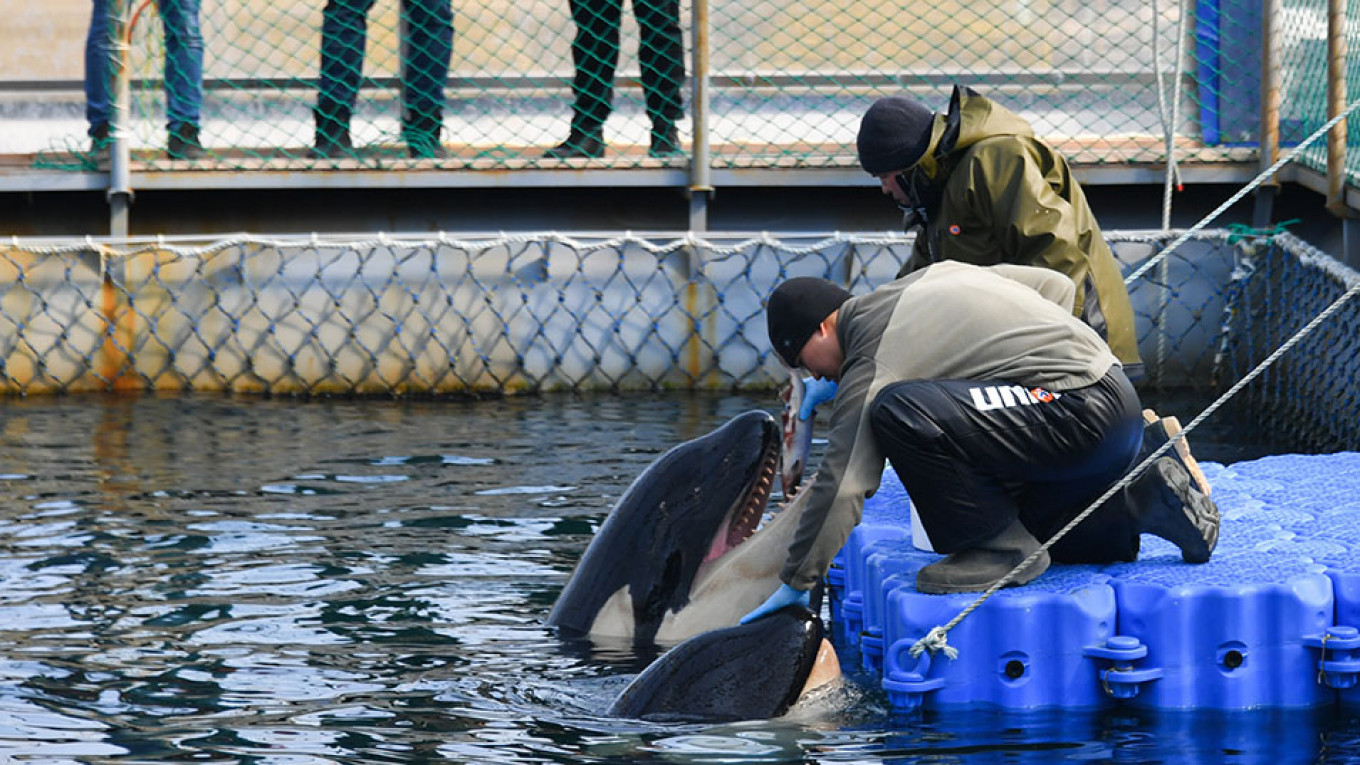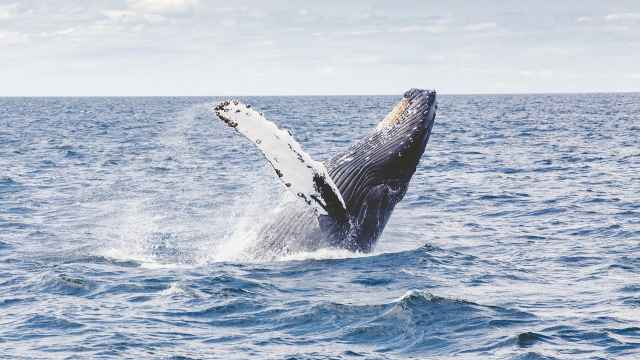Russia released two killer whales and six beluga whales back into the wild on Thursday, the first group of almost 100 whales whose detention in the Far East since last year caused an international outcry.
The whales, caught last summer in order to be sold to marine parks or aquariums in China, were released in the Gulf of Sakhalin, part of their natural habitat in the Sea of Okhotsk, a Russian oceanography research institute said in a statement.
The plight of the whales, which were held in cramped conditions, captured the imagination of people around the world and prompted celebrities such as actor Leonardo DiCaprio to petition for their release and for the Kremlin to get involved.
The Kremlin ordered local authorities in the Russian Far East to intervene months ago, but the problem of how to release them without causing them harm caused delays.

International scientists raised concerns that the well-being of the whales would be jeopardized if they were not returned to their original habitat.
The move to begin their release into their natural habitat was announced last week during President Vladimir Putin's annual question and answer phone-in, which he uses to burnish his image among the Russian public.
"Vets conducted all the necessary tests before they were freed and the results showed the animals are in good health," the oceanography research institute said on Thursday.

The two killer whales, which were released separately from the beluga whales, were "nervous" about their return to the wild and swam near to the shoreline for hours before finally heading out into the open sea, it said.
The orcas have been tagged with tracking devices so their movements and behavior can be monitored.
Russia's FSB security service has brought charges against four Russian companies that caught the whales for breaking fishing laws.
The Kremlin has said Russia has no direct ban on catching whales, but that they can only legally be caught in specific circumstances, for scientific and educational purposes.
A Message from The Moscow Times:
Dear readers,
We are facing unprecedented challenges. Russia's Prosecutor General's Office has designated The Moscow Times as an "undesirable" organization, criminalizing our work and putting our staff at risk of prosecution. This follows our earlier unjust labeling as a "foreign agent."
These actions are direct attempts to silence independent journalism in Russia. The authorities claim our work "discredits the decisions of the Russian leadership." We see things differently: we strive to provide accurate, unbiased reporting on Russia.
We, the journalists of The Moscow Times, refuse to be silenced. But to continue our work, we need your help.
Your support, no matter how small, makes a world of difference. If you can, please support us monthly starting from just $2. It's quick to set up, and every contribution makes a significant impact.
By supporting The Moscow Times, you're defending open, independent journalism in the face of repression. Thank you for standing with us.
Remind me later.






